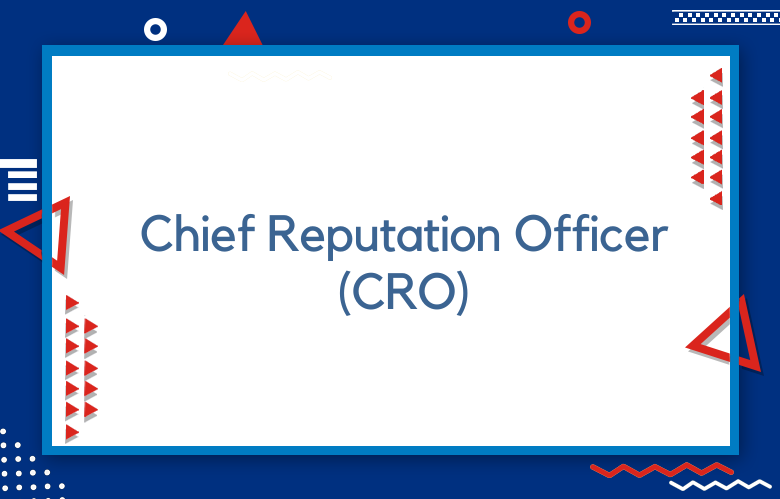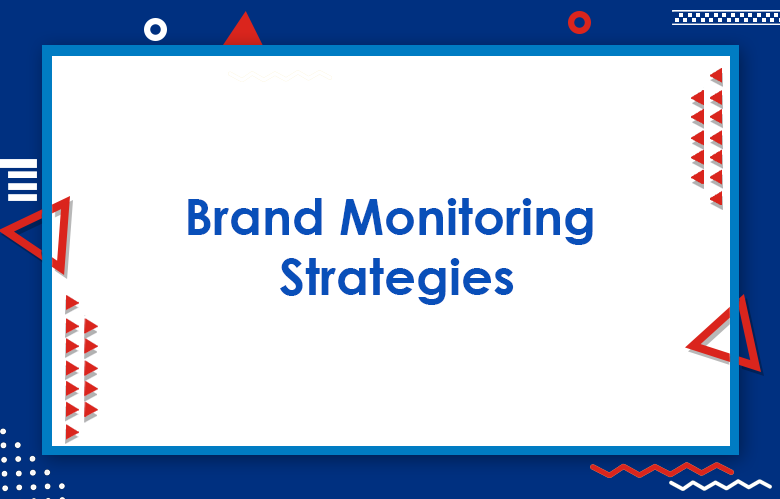Chief Reputation Officer (CRO) Role and Responsibilities

The Chief Reputation Officer (CRO) is a senior executive responsible for managing and protecting an organization’s reputation. In today’s digital age, an organization’s reputation can be easily damaged by negative news, social media posts, and other online content, making the role of the CRO more important than ever.
Chief Reputation Officer (CRO) Role and Responsibilities
Developing and implementing a comprehensive reputation management strategy, monitoring and analyzing the organization’s reputation, addressing potential risks, communicating effectively with stakeholders, and integrating reputation management into all business areas.
By developing and implementing policies and procedures, leading and managing a team of reputation management professionals, and continuously monitoring and evaluating the organization’s reputation, the CRO helps ensure that it remains positive and supports its overall objectives and priorities.
The CRO’s responsibilities include
- Developing and implementing a comprehensive reputation management strategy supporting the organization’s objectives and priorities.
- It monitors and analyzes the organization’s reputation, including its online presence, media coverage, and other public perceptions.
- Identify and address potential risks to the organization’s reputation, including negative news coverage, social media posts, and other online content.
- Developing and maintaining relationships with key stakeholders, including customers, employees, partners, and media outlets, to ensure that the organization’s reputation is accurately reflected and supported.
- Communicating effectively with stakeholders to ensure they understand the organization’s values, mission, and objectives and build trust and credibility.
- Working with other departments and leaders within the organization ensures that reputation management is integrated into all business areas, including marketing, public relations, and customer service.
- Developing and implementing policies and procedures to support effective reputation management, including guidelines for social media use, crisis communication, and media relations.
- Leading and managing a team of reputation management professionals, including public relations, social media, and communications specialists.
- Continuously monitor and evaluate the organization’s reputation to ensure that it remains positive and supports its overall objectives and priorities.
Unraveling the Role of a Chief Reputation Officer: A Comprehensive Guide
In today’s fast-paced and digitally connected world, an organization’s reputation can be a critical factor in its success or failure. A negative reputation can damage a company’s brand, undermine consumer trust, and negatively impact its bottom line. On the other hand, a positive reputation can attract customers, improve employee morale, and boost financial performance. That’s where the Chief Reputation Officer (CRO) comes in.
The CRO is a senior executive responsible for managing and protecting an organization’s reputation. They develop and implement strategies to build and maintain a positive reputation, mitigate reputational risks, and respond to crises when they arise.
The role of the CRO is crucial in today’s business environment, as an organization’s reputation can be impacted by a wide range of factors, including its products and services, corporate behavior, and public perception.
This comprehensive guide will explore the role of the CRO in detail, covering their responsibilities, the skills and qualities required for the role, the challenges they face, and how they can effectively manage an organization’s reputation.
From the Shadows to the Spotlight: The Rise of the Chief Reputation Officer
In the past, organizations often overlooked or undervalued the Chief Reputation Officer (CRO) role. Reputation management was usually seen as a reactive function, focused on damage control rather than a proactive strategy. However, as the business landscape has become more competitive and reputation has become increasingly important, the role of the CRO has risen to prominence.
As a result of these trends, the CRO’s role has evolved from a reactive, behind-the-scenes function to a strategic, high-profile role that is critical to an organization’s success. CROs are now seen as crucial executive team members, and their responsibilities have expanded to include not just reputation management but also corporate responsibility, sustainability, and other areas critical to building a solid and positive reputation.
The Multifaceted Responsibilities of a Chief Reputation Officer
In today’s ever-evolving business landscape, the Chief Reputation Officer (CRO) role has become increasingly multifaceted and essential. Often compared to a Swiss Army knife, the CRO is a versatile and adaptable professional who can handle a wide range of responsibilities and challenges.
The CRO is responsible for developing and implementing a comprehensive reputation management strategy that aligns with the organization’s overall business objectives. This includes monitoring and analyzing the organization’s reputation across various channels, identifying and mitigating potential reputational risks and threats, and developing and implementing a crisis management plan to respond effectively to reputation threats and crises.
As the business environment evolves, the CRO’s responsibilities may continue to expand and adapt to new challenges and opportunities. The CRO’s ability to manage various functions and adapt to changing circumstances makes them a valuable asset to any organization.
Guardians of Trust: How the CRO Role is Shaping Corporate Reputations
The Chief Reputation Officer (CRO) is a relatively new role in the corporate world, but it is quickly gaining importance as organizations increasingly recognize the value of their reputations. In an era where trust in businesses is often fragile and hard-won, the CRO is tasked with guarding and shaping the organization’s reputation, ensuring that it remains a positive asset rather than a liability.
The CRO monitors and manages an organization’s reputation across various channels, including social media, news media, and stakeholder feedback. They must identify potential risks and threats to the organization’s reputation and develop strategies to mitigate them.
One key challenge facing CROs is the increasing scrutiny organizations are facing from stakeholders, including customers, employees, investors, and regulators. These stakeholders demand greater transparency and accountability from businesses and quickly call out any perceived wrongdoing or misconduct.
Navigating the Storms: The Critical Responsibilities of a Chief Reputation Officer
The Chief Reputation Officer (CRO) role has become increasingly critical in today’s business environment, where reputations can be built and destroyed in the blink of an eye. The CRO is responsible for ensuring the organization’s reputation remains strong, even during unexpected challenges and crises.
One of the CRO’s most critical responsibilities is crisis management. When a crisis strikes, whether a product recall, a data breach, or a public scandal, the CRO must act quickly to contain the damage and protect the organization’s reputation. This may involve developing a communications strategy, issuing public statements, engaging with stakeholders, and working with other departments to implement necessary changes.
The Reputation Maestro: Unveiling the Artistry of a Chief Reputation Officer
The Chief Reputation Officer (CRO) role is complex and nuanced, requiring a unique blend of skills and expertise. In many ways, the CRO is like a maestro, orchestrating a symphony of reputation management activities to create a harmonious and positive image for the organization.
At the heart of the CRO’s role is understanding and influencing stakeholders’ perceptions, including customers, employees, investors, and the media. This involves developing and implementing strategies to build and maintain a positive reputation and responding effectively to any challenges or crises that may arise.
One key skill required for the CRO role is strategic thinking. The CRO must anticipate potential risks and threats to the organization’s reputation and develop strategies to mitigate these risks. This may involve developing a comprehensive reputation management plan and regularly monitoring and analyzing the organization’s reputation across various channels.
Conclusion
The Chief Reputation Officer (CRO) role is critical in today’s business environment, where an organization’s reputation can be a valuable asset or a significant liability. By developing and implementing a comprehensive reputation management strategy, the CRO helps ensure that the organization’s reputation is aligned with its overall objectives and values and effectively managed and protected.



